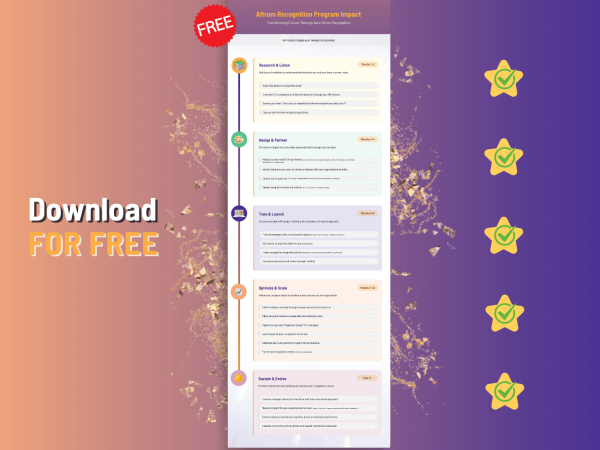7 HR Trends to Watch in 2025
March 3, 2025HR trends are not just about staying current with the latest best practices. They are about ensuring all your team members feel supported and valued. As well as positioning your business for success, in a rapidly evolving landscape.
 While examining key HR trends for 2025, we went beyond the basics, consulting industry veterans Annie Breton, Patrick Dupuis, and John Mills – each with decades of expertise in recognition and human capital management. Their insights provided nuanced perspectives on employee retention, HR’s evolving role, and the growing importance of recognition.
While examining key HR trends for 2025, we went beyond the basics, consulting industry veterans Annie Breton, Patrick Dupuis, and John Mills – each with decades of expertise in recognition and human capital management. Their insights provided nuanced perspectives on employee retention, HR’s evolving role, and the growing importance of recognition.
The result? A deeper understanding of the intricacies of these shifts, offering actionable insights for today’s workplace complexities.

1. Non-Monetary Benefits as a Strategic Lever for Engagement and Retention
While fair compensation is essential, the most successful businesses in 2025 will be those that go beyond monetary rewards. Non-financial benefits, such as development and advancement opportunities, as well as recognition, are becoming essential levers for retaining top talent. As recognition expert Patrick Dupuis, who has over 20 years of experience in HR, explains, talent retention is not just about offering competitive salaries.
He notes that, to foster employee loyalty and engagement in 2025, HR professionals should prioritize the following key strategies:
1. Strategic Focus on Employee Retention:
Retaining top talent requires more than competitive salaries. HR professionals should prioritize creating meaningful employee experiences through robust onboarding programs and clear career progression paths. Regular check-ins and personalized development plans also contribute to employee loyalty and satisfaction.

2. Prioritizing Engagement in Uncertain Times:
Open communication and authentic leadership can combat disengagement and “quiet quitting.” By offering transparent updates on company goals and recognizing employee contributions, businesses can strengthen trust and connection. Team-building activities and regular employee surveys further enhance engagement.
3. Empowering the Workforce Through Technology:
Accessible learning platforms and clear skill development roadmaps keep employees competitive. Combining these tools with technology-friendly collaboration solutions ensures employees feel supported as they adapt to changes.
4. Embedding Well-being into Workplace Culture:
Flexible schedules, wellness programs, and mental health resources are key. Encouraging breaks and respecting boundaries help prevent burnout, while recognizing achievements and offering personal growth opportunities create a motivated workforce.
Keep Reading – Discover the Full 2025 HR Trends!









